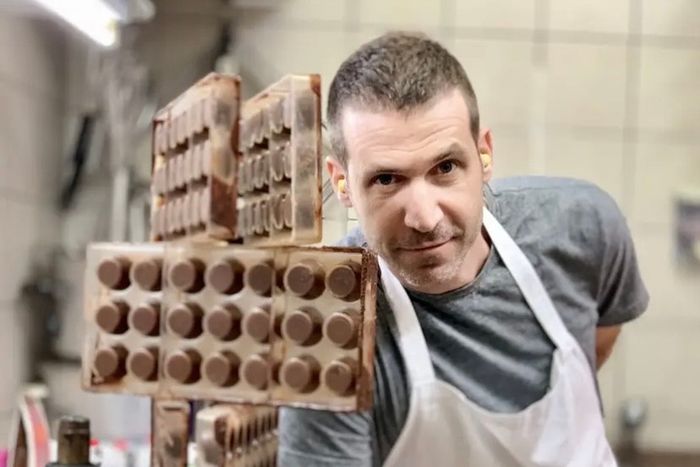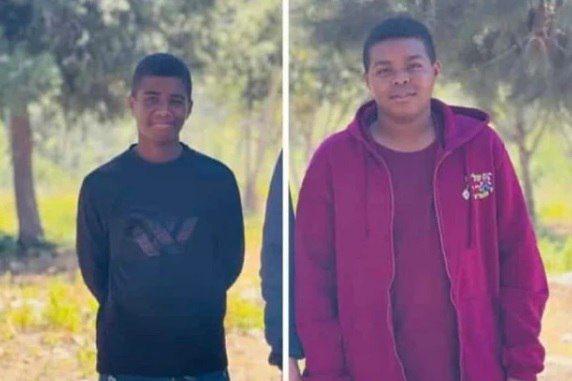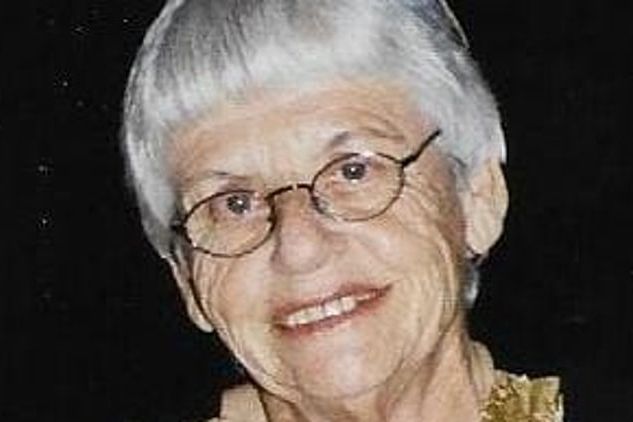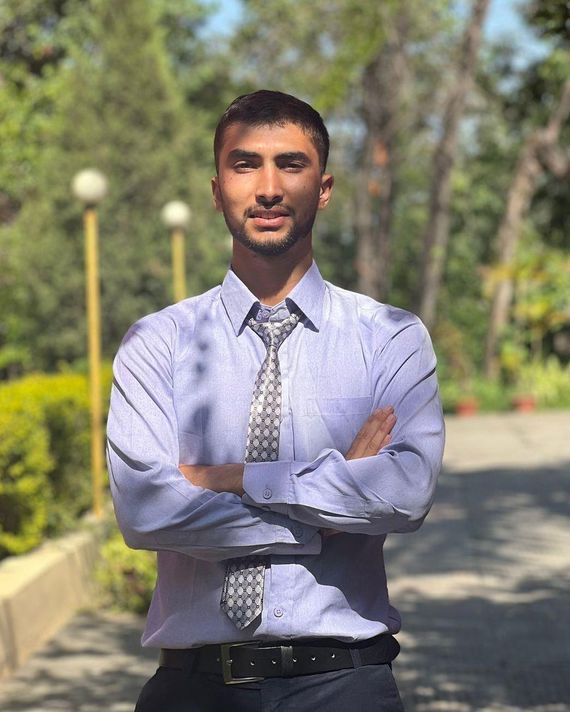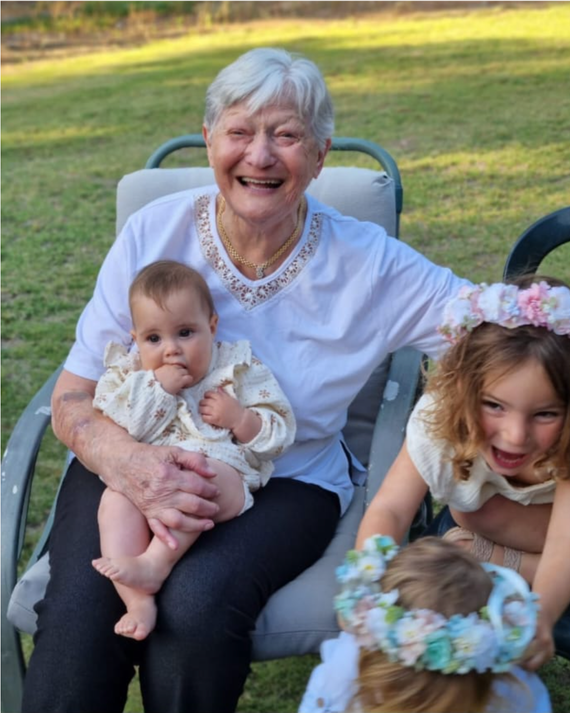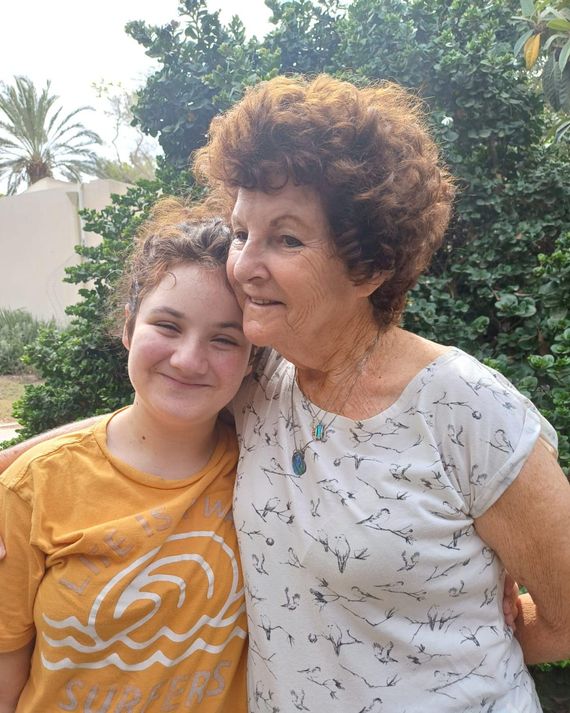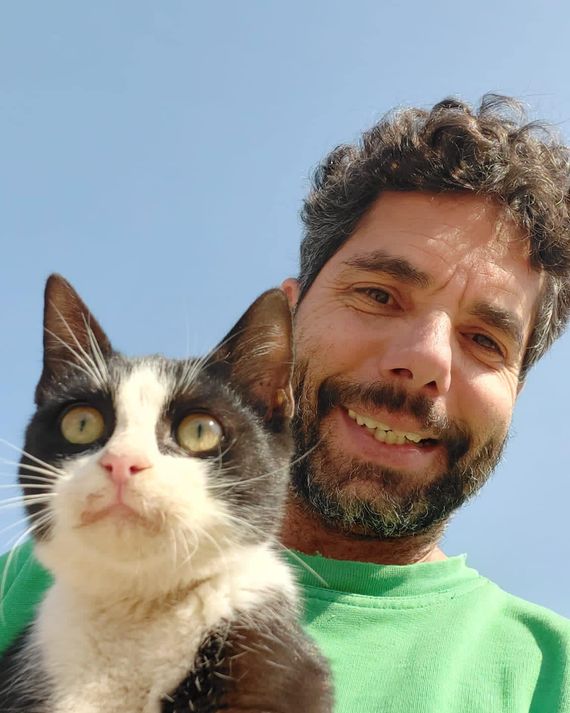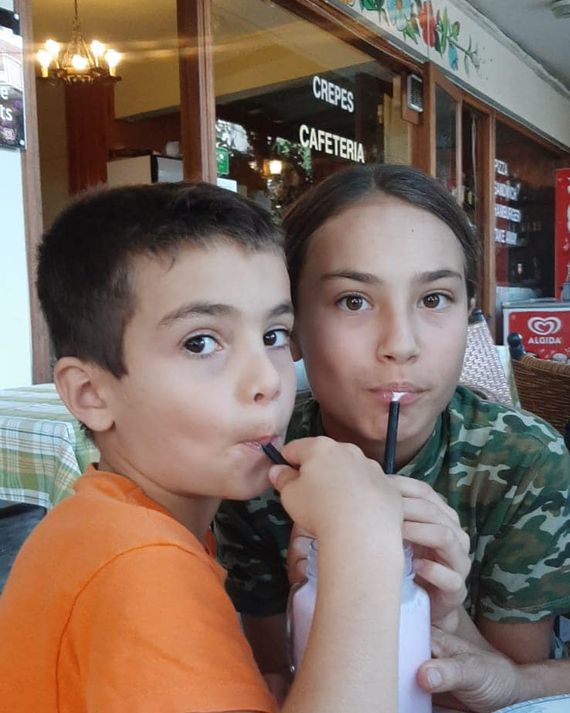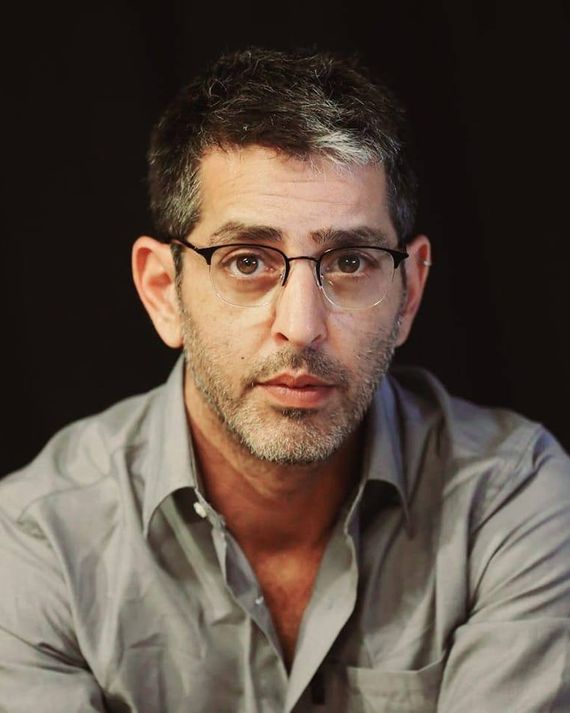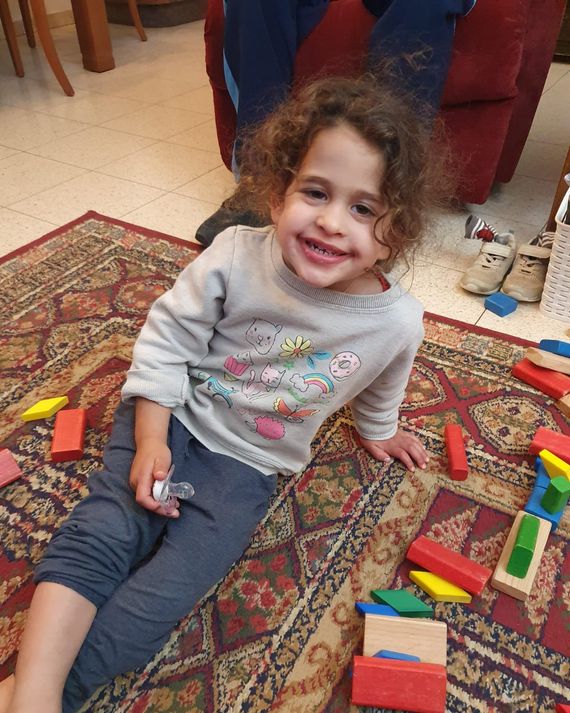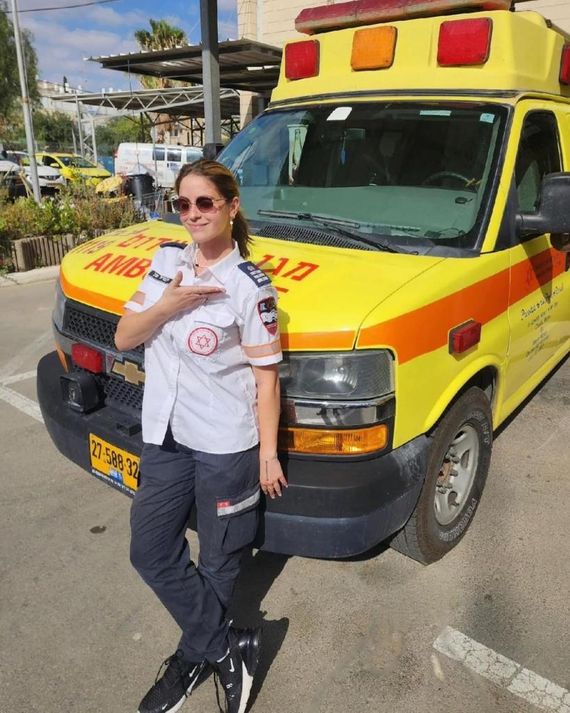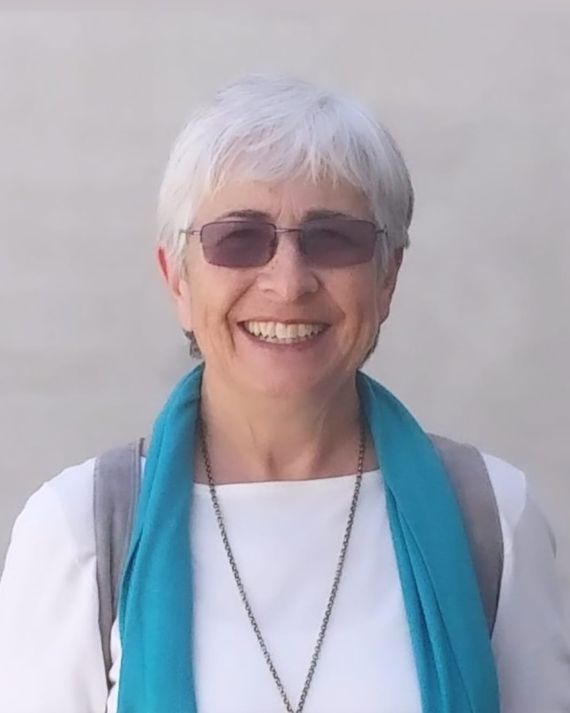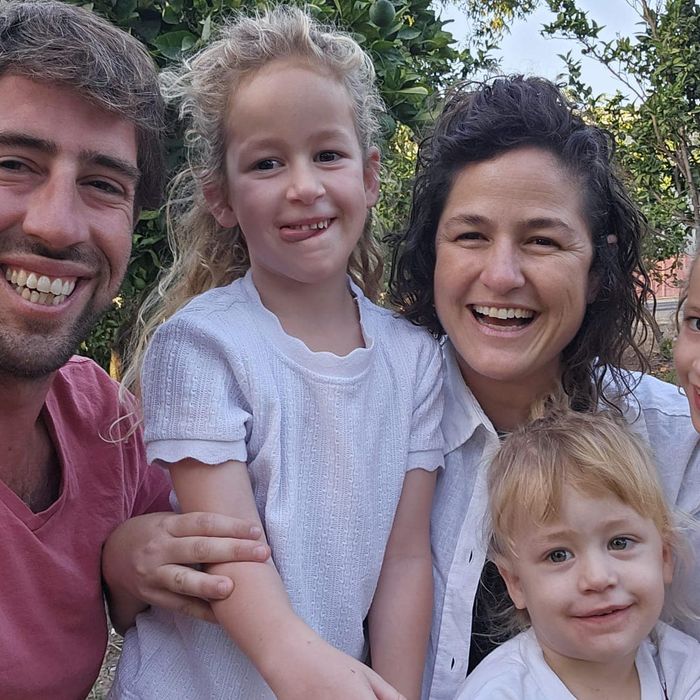
At 8:20 on Saturday morning, Hamas terrorists who had crossed into Israel from Gaza entered Dvir Karp’s house at Kibbutz Re’im.
The 450 residents of the kibbutz are used to visitors on the weekends but usually ones that come to tour the orchards or show their children the farm.
On any other day at that time of the morning, Dvir was already at work. He was the proprietor of the Chocolate Café, which offered coffee and sweets, among them his own homemade pralines.
Saturday, the Sabbath, was his one day off.
His children — Daria, 10 years old, and Lavi, 8 and a half — had just woken up. His girlfriend, Stav, was with him when the gunmen entered.
“There’s a big mess here … a massive shooting in the kibbutz,” Dvir wrote to Reut, his estranged wife and the mother of his children.
“Shooting? Inside the kibbutz?” she replied.
“Yes. It sounds like it.”
Four minutes later, he was dead.
“Mom, it’s Daria. Dad was murdered. Stav as well. Help!” Dvir’s daughter wrote to Reut using her father’s phone.
“The terrorist calmed Daria and my son, covered them with a blanket,” Reut said. “Then he took lipstick and wrote on the wall: ‘The people of al-Qassam do not kill little children.’ For three hours I was on the line with Daria. Calming her down, breathing with her, hearing her breathing heavily and then panicking when she heard someone still inside the house and I instructed her to be quiet. We stayed on the line. She was surrounded by bodies.”
“My dear girls, I love you all. Are you safe?” wrote Tamar Kedem Siman Tov, a 35-year-old mother of three, to her friends from the Mayor’s School, an initiative aimed at increasing the representation of women in Israeli politics. She sent this message at 6:41 a.m. on Saturday, just as the rocket attacks from Gaza started.
Tamar, who had lived in Kibbutz Nir Oz since she was 20, ran for the presidency of the local council in an area bordering the Gaza Strip that includes several kibbutzim and moshavim. Her campaign emphasized her family’s roots in the Israeli kibbutz movement: Popa and Yehuda Kedem, her father’s parents, were the founders of Kibbutz Ein HaShlosha. Her husband, Yonatan Siman Tov, a well-known wheat farmer in the region, had supported his wife’s ambitious career, taking care of their children — 6-year-old twins Shahar and Arbel as well as their 4-year-old son, Omer — when their mother was campaigning.
Not long after sending this message, Tamar, Yonatan, and the three children were all shot to death. Yonatan’s mother, Carol Siman Tov, was killed at the same time in a different house. In all, more than 100 members of the kibbutz’s 400 residents were injured, killed, or kidnapped.
Yazen Zakaria Abu Jamaa, 5 years old, was killed by a rocket near his home in Arara in the Negev, 75 miles southeast of Gaza City. Arara is one of the settlements of the Bedouin population in the Negev Desert, long neglected by the Israeli government. There are no sirens — and often no electricity — in these villages. The Iron Dome doesn’t cover them.
At least nine residents of Bedouin settlements in the south were killed by rockets fired from Gaza. Among the dead were six children, including Malek Ibrahim al-Kran, 14, and Javad Ibrahim al-Kran, 15. They were brothers.
Amin Aqel Al-Kran, 11, and Mohammad Dib Al-Kran, 12, cousins, were also killed, as was Faiza Abu Sabeih, 57, and her 13-year-old granddaughter, May Zuhair Abu Sabeih. Fatma Altlakat, 35, was shot to death.
An official statement from the Arab Committee for Emergencies in the Negev expressed “deep sorrow and participation in the mourning of the families.”
The last time anyone heard the voice of 84-year-old Dietza Hyman was on Saturday morning when she opened the door of her house and screamed, “I need help!”
Dietza, a social worker, a widow from a young age who had raised four children by herself, was known as a strong woman. She was one of the founders of Kibbutz Nir-Oz in the 1950s and still lived there.
However, in her ninth decade of life, Dietza had difficulty walking. A neighbor heard her scream and came to help. The neighbor later told her daughters that he had attempted to confront the terrorists who were inside her house, but they shot at him, forcing him to retreat.
One of her daughters, Dafna Shai Hyman, had managed to talk to her a few hours before. Dietza had told her that she was hiding in the safe room of her home. In the coming hours, news of the massacre in the kibbutz began to spread, and Dietza wasn’t answering her phone. Dafna kept calling. At noon, someone picked up the phone, but the voice on the other end was not her mother’s.
“It’s Hamas, it’s Hamas,” said a man’s voice.
Dafna hung up.
When the security forces managed to break into Dietza’s house, it was empty. “Our beloved mother is missing,” her daughter wrote on Facebook. “Apparently, terrorists kidnapped her from her home and took her to the Gaza Strip. We are feeling helpless and overwhelmed with worry; no one has contacted us yet. Please share a picture of her holding one of her great-grandchildren with the whole world so that someone might be able to help us.” Without her medications, her daughters don’t know how their mother would survive in captivity.
Bipin Joshi, 23, arrived in Israel just two months ago, from Nepal. He worked on Kibbutz Alumim, in southern Israel, tending to crops like carrots, potatoes, and sweet potatoes. Through a program sponsored by the Israeli government, he had enrolled in classes at a nearby university.
On Saturday morning, Bipin was milking the kibbutz’s cows when Hamas attacked. Ten Nepalese workers at the dairy farm were killed. Bipin is still missing. His family and friends worry that he is lying unidentified in a hospital.
In every picture taken that Saturday of Yaffe Ader, an 85-year-old woman from Kibbutz Nir Oz currently held captive by Hamas, she was seen wrapped in her pink blanket, smiling. She was sitting in a golf cart next to four armed men, smiling. She was being driven through the streets of Gaza City, smiling.
“She smiles to keep her pride,” explained Adwa, one of her grandchildren. “My grandmother, who believed in Zionism, who loved this country, is probably dumped somewhere, suffering severe pain, without medicine, food, and water, dying of fear, alone.”
On the morning she was kidnapped, Yaffe was waiting for her grandchildren and great-grandchildren to visit. They wanted to go on a tractor trip. When the first rockets started falling, Yaffe’s granddaughter Orian Ader joked with her siblings in a group text that she hoped Yaffe could make “takeaway food,” if it turned out they couldn’t visit. They were used to missile attacks disturbing their weekends.
Yaffe’s son Moshe survived the attack. He and his partner, Havatzelet Hed, were evacuated to a hotel in the city of Eilat after 48 hours of fighting in the kibbutz. “We’ve been through five days of the Holocaust,” Havatzelet said. “Now we are in Eilat, as far as I know an unthreatened and quite safe city. But no representative got in touch with us. No authorized official. Does that seem reasonable? Our public officials should be ashamed.”
Hadas Kalderon was alone when the terrorists infiltrated her house. “I love all of you … shots fired here … I’m not sure I’ll get out of this,” she wrote in her family’s group text, named Family Is the Most Important Thing. “We love you but we are not saying good-bye,” answered her former mother-in-law, Carmela. Hadas clung to the door handle of her safe room for eight hours.
At her ex-husband Ofer’s house, the family had failed to properly lock the safe room’s heavy door. Erez, 12, wrote to his sister, Sahar, at 8:25 a.m., “They are here.”
“Who? Are you in the safe room?”
“We are hiding from them … We left the house.”
“Where are you? Where are you going?”
At her home nearby, Carmela couldn’t hold back any longer and opened the safe-room door. She had to pee. Her daughters told her, “Don’t you dare leave,” in the family chat, but she really had to go.
“They entered my house, rummaged through the closets. Looters! they turned everything upside down and made a mess! The air conditioner was working so we didn’t hear a thing! I’ll send photos of what a mess they made,” Carmela updated on her way back, horrified by the scene of disorder.
“You left the safe room? Is the danger over?”
“No, I just opened the door for a moment to take out a towel and then I saw that my house had been looted, it’s unbelievable!”
“Mom, lock the door!”
Carmela didn’t answer. Her granddaughter Noya also went missing, as did Ofer and Sahar. Efez was last seen in a video, being held captive by Hamas. Carmela and Noya were later found dead near the Gaza border.
In the evening, the only member of the family to show up at the meeting point for survivors was Hadas.
When the alarms began blaring at 6:40 in the morning, Roi Idan, a news photographer for the Ynet website and Yedioth Ahronoth newspaper, left his home in Kibbutz Kfar Gaza with his camera. He managed to capture some of the earliest images of the terrorist squad that infiltrated his kibbutz using motorized paragliders. He continued to document the missile barrages and interceptions occurring in the vicinity before hurriedly returning to his house.
Smadar, his wife, and their three children, 9-year-old Michal, 6-year-old Amalia, and 3-year-old Abigail, were in the house. Smadar was killed in the living room. Michal and Amalia sought refuge in the closets of the house.
Neighbors later told Roi’s sister that Roi had been shot while shielding Abigail in his arms. Abigail is still missing, presumably being held hostage. Michal and Amalia, now under the care of relatives, grapple with the bewildering absence of their parents and their sister.
Ivonné Rubio and Antonio Macias Montano are Colombian citizens who immigrated to Kfar Saba, in central Israel, three years ago. Each had children from a previous relationship: Ivonné had a 1-year-old son named Aviel, Antonio had a 3-year-old daughter named Manuela.
While raising their children, Ivonné pursued a degree in accounting and also worked as a model. Antonio worked at a barbershop. On Friday, they joined 3,000 other people at Nova, a music festival near the border with Gaza.
The last time anyone heard from Ivonné was when she called her father, Julio Rubio, at 7:15 a.m. “Dad, we are at war. I am running toward the bunker,” she said. Both Ivonné and Antonio died, along with some 260 others at the music festival. The children are in Jerusalem, safe, with Ivonné’s parents.
“I remember when I knew you as a little girl and now you’ve grown up and become my best friend. I’m the happiest that I get to be with you every moment. I love you forever and ever,” Ivonné wrote to Manuela on her 6th birthday. She’ll turn 7 in three months.
“What’s going on there, Amit? Please update,” asked Haviva Man, worried for her little sister.
“They killed two more who were here with us. I want to get out of here,” replied Amit, a 22-year-old paramedic.
They were five sisters, Haviva, Mery, Lior, Ron, and Amit, who grew up in the city of Netivot in the south of Israel. When Amit, the youngest, was 14, her father died. Back then, seeing the paramedics of Magen David Adom, the national rescue organization, trying to save him, she decided that one day she would be a member herself.
On the morning of the attack, Amit, who lived in Kibbutz Be’eri, about four kilometers east of the Gaza Strip, was at work in the kibbutz’s clinic, which doubles as a dentist’s office. When dozens of injured people started to arrive, she called Magen David Adom and insisted that an ambulance should come to evacuate the injured. The service had had many calls that morning. No one could help.
“They entered houses and slaughtered people. There’s shooting again.” Amit told her sisters at 11:07.
“What about the injured?” asked Haviva.
“No good, there’s no way to evacuate them.”
“Are there children too?”
“They’re bleeding here.”
“Amit?”
“I’m alive. Let it end already.”
“It will end soon, dear, don’t give up.”
Amit hid in the kitchen with a knife, hearing the shots come closer and closer. At 1:50 p.m. she wrote to her family, “They are back, they are attacking us. Please pray for us.”
“Who came back?”
“The terrorists, they are coming here.”
“Hide, Amitush. What’s going on there?”
“How can we talk to the army? Tell them to come to us. They are here. I can hear them outside.”
“I’m trying, Are the guys with the weapons there?” said her sister Lior.
“They’re here. I don’t think I’ll get out of here alive. Be strong, if something happens to me.”
“Amit, play dead. Put blood on yourself,” Haviva said.
“They’re here. I love you.”
Are they in the clinic?” Haviva asked, but Amit didn’t reply.
After a few minutes, Amit answered her phone. Haviva heard bullets and the screams of her sister. She was the last one they killed at the clinic. It was 2:15 p.m, six hours after she first asked for help. One hundred and eight bodies were found in Kibbutz Be’eri, one out of every ten people who lived there.
Vivian Silver, 74, didn’t take a knife to the safe room in her home at Kibbutz Be’eri. She was hiding in the closet when the terrorists arrived. Unlike many Israelis, Vivian had spent significant time in Gaza. It was in the beginning of the 2000s, prior to the outbreak of the second intifada. Collaborating with various organizations, she tried to refute the notion that there was “no partner on the other side,” stating, “I personally know so many Palestinians who yearn for peace no less than we do,” she wrote on her blog in August 2018. She founded an association dedicated to Arab-Jewish cooperation and provided assistance to Palestinian residents of Gaza who required medical treatment. She was a leading member of Women Wage Peace. She had lived in Kibbutz Be’eri for 35 years.
On that Saturday morning, she was on the phone with her son, Yonatan, when shots rang out and they switched to messaging. She informed him that she was taking cover behind a wardrobe. Her family has not heard from her since.
More on the israel-hamas war
- A Year After October 7, Israelis Ask, ‘Where Is the State?’
- ‘It’s Really Hard to Hold On in This Reality’
- How Israelis Are Feeling One Year After October 7


